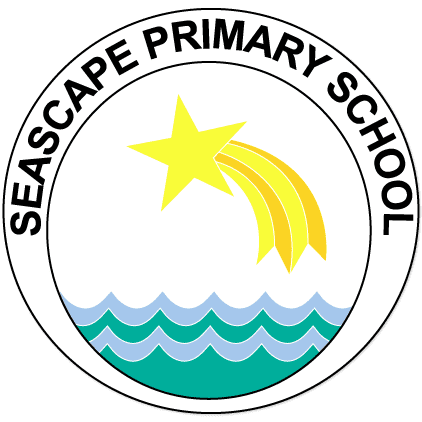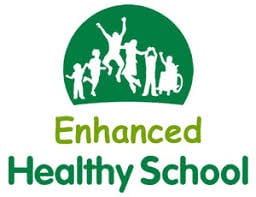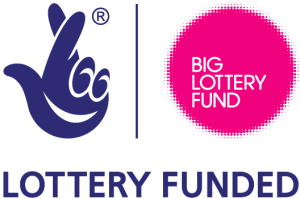Most children and young people in mainstream schools will have their special educational needs met through good classroom practice. This is called Quality First Teaching.
Early Identification of Need
In deciding whether to make special education provision to support educational, social, physical or emotional needs, we:
- Work in partnership with parents/carers, pupils
- Consult with relevant external agencies
- Use assessment tools & materials
- Use observations
- Use Short Notes
- Other
SEN Support
Where a pupil is identified as having a special educational need we follow a graduated approach which takes the form of cycles of “Assess, Plan, Do, Review”.
This means that we will:
Assess a child’s special educational needs
This happens during our regular assessment procedures every half term. Assessment of specific interventions may take place more regularly. Assessments from external professionals are always shared with parents / carers. Other assessments are used on the SEN support plan to identify next steps
Plan the provision to meet your child’s aspirations and agreed outcomes
Provision is mapped for all children across the school termly. It is then reviewed half-termly to ensure maximum progress for all children. Individual plans for children are listed in support plans and parents / carers are encouraged to contribute to these plans.
Do put the provision in place to meet those outcomes
Provision maps ensure the support for pupils is carried out and all interventions are reviewed at least half-termly.
Review the support and progress
Support plans are reviewed at least three times a year. This is in September, December and April. Parents will be invited into school to review these with the class teacher and the SENCO. When parents are unable to come into school, virtual meetings will be made available via Teams.
As part of this approach every child with SEN will have an individualised SEN Support Plan that describes the child’s needs, outcomes & provision to meet those needs. Parents/carers and child/YP (where appropriate) views are integral to this process.
A small percentage of children and young people with significant and/or complex needs may require an assessment that could lead to an Education, Health and Care Plan.
If a child’s needs are very complex and/or severe we may ask the Local Authority to carry out an Education, Health and Care Assessment:
- This is a very detailed assessment of each child’s needs. Parents or carers, the school and a range of professionals will all be asked to provide written reports.
- At the end of the assessment phase, the Local Authority will consider these reports to help decide whether or not to issue an Education, Health and Care Plan for the child.
- Parents/carers also have the right to ask the Local Authority to carry out this assessment although it is usually best if you can do this with the support of the school.
Within school, we have teaching and support staff who have extensive knowledge of SEND. The school has a number of Teaching Assistants and teachers who have training and expertise in the following areas:
- Fine and gross Motor Skills
- Speech and Language
- Autistic Spectrum
- ADD/ADHD
- Behaviour support
- Nurture
For more detailed information see the Local Offer
Details of Identification and Assessment of Pupils with SEN
- We talk to parents/carers if they think their child has a special educational need and let them know what special help the school can offer. Mrs Lindsay-Barnes is our Special Educational Needs Co-ordinator (SENCO)
- We have a written Special Educational Needs Policy – Visit our School Policies section to view or download the Special Educational Needs and Disabilities (SEND) Policy. This policy is also available from the school office.
- As a school, we provide quality first teaching. If a class teacher identifies a need, they will find ways to support a child within the classroom setting using ordinary available provision.
- We offer small group support to promote skills identified in the child’s Support Plan
With the permission of parents, we may seek additional advice from outside specialists such as health professionals, specialist teachers or educational psychologists who would:
- Carry out further assessment of the child’s needs
- Provide advice to schools on how to best support the child
- Suggest resources that would help the child make progress
Our teachers/teaching assistants work in partnership with parents and the SENCO to find ways to support each child with their needs, including giving parents ideas on how to help their child at home.
If parents have any questions regarding their child’s SEN, they should in the first instance contact the school SENCO via the school office. If they have any complaint following the SEN process then they should follow the school’s complaints procedure.
How do you ensure access to appropriate high quality teaching, differentiation and intervention?
We have a high staff to pupil ratio and use streamed classes and small groups in English to ensure all work is differentiated to the correct level. Rigorous gap analysis is used in maths to ensure responsive teaching for every child. The child, and the teacher, know the next step required for success. Please refer to our teaching and learning policy for more detail on this.
How is the ‘assess, plan, do, review’ cycle incorporated into SEN provision?
- The APDR process is planned into the yearly school calendar. Teachers meet with the previous class teacher in July to discuss pupils’ needs in depth and then plan the provision the following September. This is then reviewed at least termly.
How are parents and pupils involved in the APDR cycle?
- All parents/carers, whose child has a SEN support plan or EHCP, will be invited to a formal meeting each term. Parents/carers will be asked to contribute their thoughts/opinions either verbally or in writing. Pupils are also asked to contribute either through attending the meeting or by filling in an all about me sheet so school are aware of how the child would like to be supported. For children with EHCPs, professionals who support the child will be invited to attend review meetings or, if they cannot attend, they will be asked to submit a written report. When a pupil has been assessed by an external agency, e.g. an Educational Psychologist, feedback information will be part of these termly meetings. The child’s needs and progress will be discussed and previous outcomes will be reviewed. New outcomes will then be set and provision will be amended as necessary. Where relevant, referrals will be made for additional assessment and support. For pupils with high-level need, support timetables and costed provision maps will be completed. For pupils with an EHCP, annual review paperwork will be submitted to the Local Authority.
How do you plan for learners with SEN?
- All children are planned for in order to move their learning forward rapidly but children with SEN will receive further support through a range of interventions, differentiated resources, 1:1 support and small group support.
How is the impact of provision evaluated for individuals and groups
- All intervention is evaluated at least half termly to ensure progress is made. Children who have not made progress will receive more sessions or an alternative method of support.
What does additional support look like in e.g. individual/group intervention, teacher, TA and peer support.
- Additional support may be in the form of smaller or streamed classes. Extra support with the teacher during the school day or intervention with a teaching assistant in the school day. School also use the SEN budget to employ a range of external specialists to work alongside SEN pupils.
How is progress measured in relation to the EYFS, NC or local measures?
- Progress is measured according to the national curriculum or EYFS framework. However, at times progress can be more specific for example in speech and language attainment or emotional resilience and school use specific methods to track this progress.
Is the behaviour policy differentiated?
- We have a detailed good behaviour policy which can be viewed on the school website. However, we will also make reasonable adaptations to this policy for children with SEMH difficulties.
How do you enable pupils with SEN engage in activities with pupils who do not have SEN?
- Our activities are planned so all pupils can access regardless of need
- We provide SEND resource boxes within each classroom to ensure sensory friendly classrooms; teaching and support staff have received training on how this can be used effectively.
- When a child is unable to manage within the classroom environment, children are provided with access to sensory time with trusted staff which allows them to self-regulate and return to the classroom, ready to learn, as quickly as possible.
- We believe that Quality First Teaching is exceptionally important for all pupils including pupils with SEND. Our maths curriculum involves a weekly gap analysis to inform teaching staff of learning gaps for all pupils, allowing the teacher to plan to fill these within whole class teaching or planned interventions.
- Our streamed English lessons allow for smaller class sizes. We provide RWI, Fresh Start and formal English lessons so that every child’s learning needs are catered for.
What arrangements are made for pupils with SEN undertaking tests and exams?
- We follow NCA advice when completing exams for pupils and encourage the use of a scribe, reader or rest breaks for pupils that need it.
How does your setting ensure that teaching staff are aware of and sensitive to the needs of all pupils, teaching pupils in a way that is more appropriate to their needs?
- SEN support is always a high priority within school. It is a regular focus of staff meetings and CPD. Our teaching assistants are also trained in all areas of SEN with most having specialist areas of expertise.
How is suitable provision for children with SEN made to fully develop their abilities, interests and aptitudes and gain maximum access to the curriculum?
- We offer a wide curriculum so all children can succeed and excel in school. We prioritise all areas of the curriculum as we believe this inspires our children to ‘Be More’. We encourage outdoor learning, a wide range of sports, gardening and cookery so all children can find something that they love and excel in.
For further information please view or download our Accessibility Plan which can be found in the School Policies section of our website.






